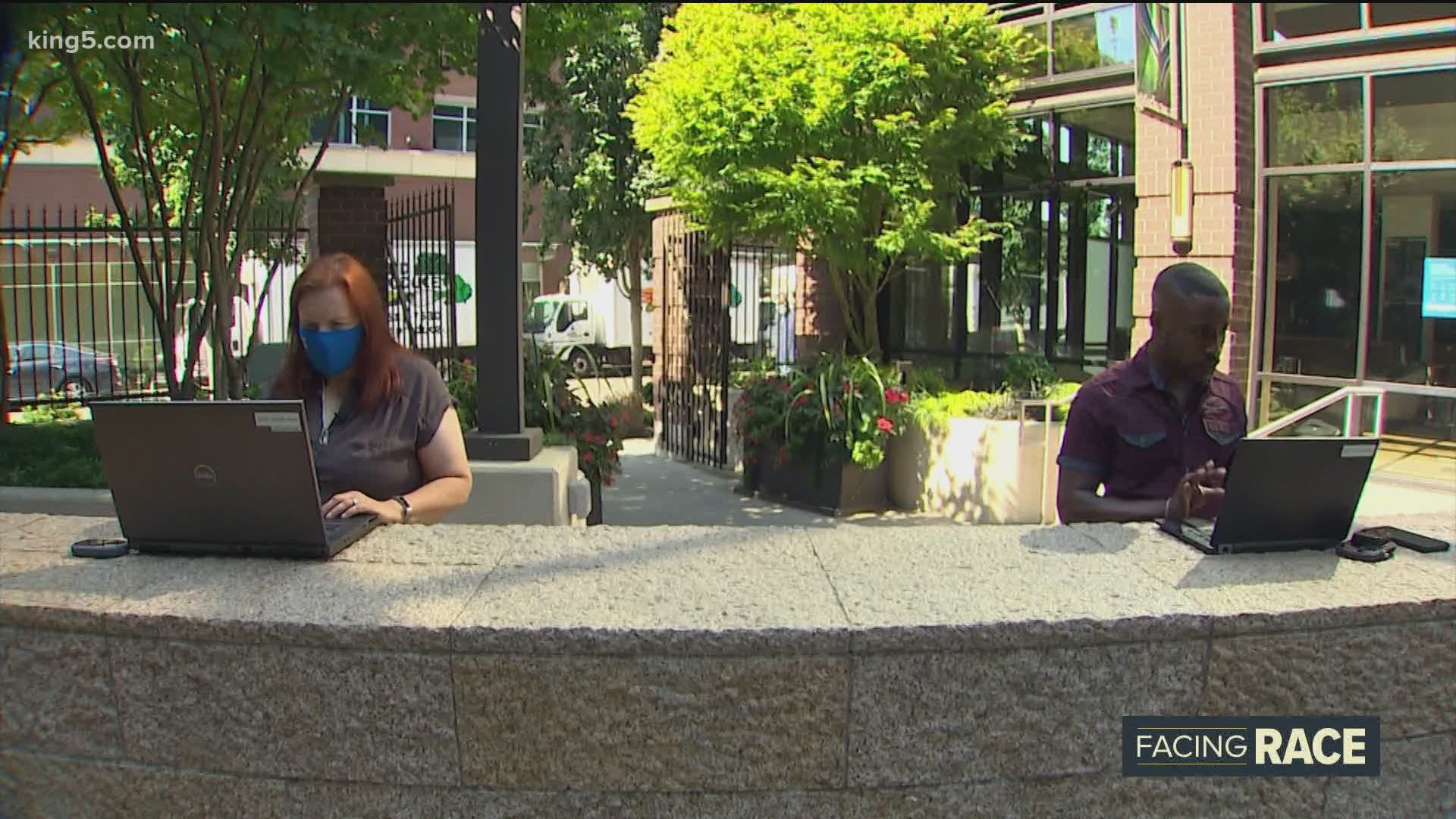SEATTLE — More than two decades ago, Tony Greenwald and his colleagues debuted an online Implicit Association Test, also known as the IAT. The award-winning test has been taken more than 25 million times since 1998.
Greenwald, a University of Washington psychology professor emeritus, explains that the test uses pictures of light and dark skin people along with words to help measure implicit bias.
“Implicit biases are now defined fairly simply as attitudes, meaning likes and dislikes, and stereotypes, meaning associations of traits with groups of people that operate automatically outside of our awareness and are capable of producing unintended discrimination,” said Greenwald.
When asked why implicit biases exist, Greenwald said, “it is because our culture has been filled with racial stereotypes. It's in literature, it's in history, it's in entertainment, media.”
“What we need to do is arrange for prevention of those implicit biases from having impact that causes what the lawyers call disparate treatment, or more simply, discrimination,” Greenwald continued.
The background of the test involves a lot of scientific and technical work that involved cognitive psychology in an area of research called social cognition.
"The main question people want to know… if I get a result that is reported as I have automatic preference for racial white relative to racial black, does that mean I'm racist? That is actually I think the main question people want to know about, and the answer to that question is no. It does not mean that you are racist,” said Greenwald.
KING 5 asked three community members to take the test.
DeAunte’ Damper is from the south end of Seattle and is the LBGTQ chair for NAACP King County.
Hector Pang was born in Hong Kong and moved to Washington state when he was 6 years old.
Pat Murakami has lived in Seattle’s Mount Baker neighborhood, and she owns an IT firm.
When asked if he ever felt discriminated against, Damper said, "Do we have enough time? I don't think we have enough time to talk about how many times I have felt discriminated against, but I was raised by parents who taught me to have enough integrity to walk past all of that, stand on my own, own my blackness as if it is gold because it is."
Pang said, “I come from a mixed background, but interestingly enough I never really feel racism."
When asked about recent months, which have included a reckoning about racism and protests, Damper said, “I see a lot of pain."
Pang responded, “What is our job? What is racism? Am I racist? And if I am, what do I do about it?"
When the trio was asked if they have biases, some admitted they thought they do.
“I'm pretty sure, I know I have some implicit bias. I know I do," said Pang.
"I think I am somewhat biased against people of my own race. I see them in really hateful, negative behaviors, and it is very distressing and disappointing to me," said Murakami.
"So no, I don't have any biases, no,” said Damper with a laugh.
When asked about what he thought of taking the implicit association test, he said, "I am nervous, but what is there to be nervous about? I mean it is just a test, right?"
"One thing we know is taking the IAT by itself is not a cure. It is, at best, an educational and informational tool that can confirm for you, if you want to confirm it, that you have an implicit bias,” explained Greenwald.
On a September day, our three subjects took the test.
"Alright, here goes nothing,” said Pang.
Murakami finished first.
"I have a slight automatic preference for African Americans over European Americans," said Murakami. "I'm not really surprised."
Damper finished second.
“So my results say you have an automatic preference for Black people over white people,” said Damper, who added that it is the result he expected.
After Pang took the test, he said, "I do have a moderate automatic preference to European Americans over African Americans."
"The question is what do I do with it, and I like to think of myself as somebody who Is not racist,” Pang continued. "If you judge me ahead of time, I feel like I am put in a box… then there's no discussion.”
Pang went on to say, "I know I am biased, and I am privileged to not have to like fully dive into it every single day. I've got work to do. I really do."
This story was produced as part of “Facing Race,” a KING 5 series that examines racism, social justice and racial inequality in the Pacific Northwest. Tune in to KING 5 on Sundays at 9:30 p.m. to watch live and catch up on our coverage here.

